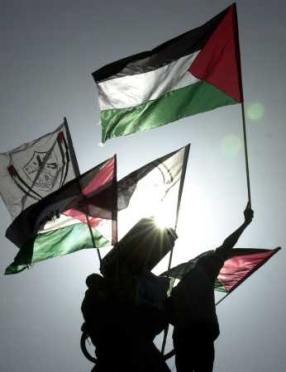
Odds are that this week or next the Palestinians will unilaterally declare their independence. What happens next?
It’s easier to say what won’t happen. Peace isn’t going to break out.
Conflict and violence will.
Chances are events will play out something like this:
The Palestinians will ask the United Nations to pass a resolution recognizing an independent state within the 1967 borders and with Jerusalem as its capital. It will be vetoed in the Security Council — where it counts — and passed in the General Assembly, where the action will not carry the force of international law. That much is an all but foregone conclusion.
The Palestinian Authority will then issue a unilateral declaration of independence.
More than 100 governments will quickly recognize the new Palestinian entity.
Israel will counter the Palestinian entity’s unilateral declaration of independence by unilaterally drawing the border between the Palestinian entity and itself.
It may draw a border along the lines of the one it has proposed to the Palestinian Authority in the past, or it may come up with something different, but draw a border it will. The only certainty is that Jerusalem will be on Israel’s side of it.
Israel then will declare its willingness to negotiate changes to the border as part of a final peace treaty — just as soon as the Palestinian entity recognizes Israel as a Jewish state.
This would effectively serve to transform the Israeli-Palestinian conflict into a border dispute involving maybe 750 square miles of land (the most land that would likely be in dispute in a final settlement if the sides actually wanted one). To be sure, 750 square miles is a big piece of the West Bank (about 30 percent). But if the quarrel is reduced to a border dispute over a dollop of land roughly the size of Boulder County, the world is apt to lose interest in it.
And the pressure on the Palestinians to reach a final settlement will be substantial; the government of the Palestinian entity will find it pretty tough to govern unless it normalizes relations with Israel.
This might be a pretty good outcome, if things ended there. But things won’t end there.
The Palestinians will not let Israel draw the border or leave the settlements in place without a fight. They will attack the settlements, and they will attack the border, especially in Jerusalem. The attacks will probably start with the sort of mass marches they experimented with in May and June on Israel’s Lebanese and Syrian borders. These may or may not start out relatively peaceful, but sooner or later (probably sooner) suicide bombers, rockets and mortars, sniping and ambushes will be phased into the mix. Most of the settlements will find themselves under siege.
Israel is expecting this, and preparing for it, by both arming the settlers and training them in non-lethal techniques of crowd control. It is also mobilizing reservists.
If violence persists and escalates Israel will likely also re-establish the road-blocks and check-points throughout the West Bank that it removed over the past couple of years, and may ultimately seal the West Bank border as tightly as it has sealed the Gaza border.
In short, the situation will likely turn into a third intifada that will go on for weeks, months or years until the sides negotiate a final settlement, or at least another time out.
If we are lucky, that is.
If we are unlucky, sustained violence on the West Bank will turn into a regional war.
Up until a couple of weeks ago, that seemed unlikely. Most scenarios for a regional war involve Syria using West Bank violence as a pretext for attacking Israel, but thanks to the nascent Syrian revolution, the Syrian army is in no shape to intervene in the Israel-Palestinian fight. Moreover, an attack on Israel — while it might be popular among Syrians in principle — would be highly unlikely to cause the Syrian street to rally to President Bashar al-Assad. Too much blood has been spilled over the past six months for that to happen.
But there is a wild card in the game — Turkey’s Prime Minister Recep Yayyip Erdogan. Erdogan has been trying to pick a fight with Israel for more than a year. Recently he has threatened to have the Turkish Navy escort ships trying to run Israel’s Gaza blockade and has threatened naval action against Israel’s recently discovered off-shore natural gas fields.
Erdogan is often described as a moderate Islamist, but he has both geo-political and geo-religious reasons for having a confrontation with Israel.
It isn’t beyond the realm of possibility that he would use sustained violence on the West Bank as a pretext to intervene on the Palestinians’ behalf, by sending the Turkish army south through Syria to attack the Golan Heights, maybe supported by Iranian revolutionary guard troops.
Assad would be in no position to object — not that he would want to.
In that case, as they say in the NFL these days, things could get chippy.
Respond: [email protected]
The situation will likely turn into a third intifada that will go on for weeks, months or years until the sides negotiate a final settlement, or at least another time out.














